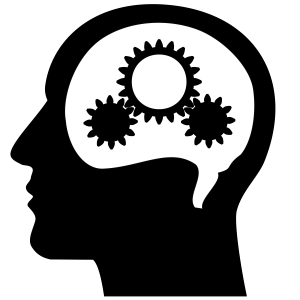
Welcome back to the next segment breaking down some of the basic elements of Acceptance and Commitment Therapy (ACT) that I utilize in therapy. Last time you read about feelings and this time we are going to address those other things that go on in your brain; your thoughts.
Let’s clarify what I mean when I refer to “thoughts”. Thoughts refer to the ideas and associations that flow through our consciousness which can be both purposeful an automatic. Purposeful thoughts are, as you might expect, the ones you have on purpose, such as coming up with this weeks grocery list or thinking critically about the information you are reading. Automatic thoughts are the ones that happen so quickly that you don’t even try to have them, they just happen. For example, that tendency you may have to call yourself a failure after a simple mistake is automatic. You didn’t plan to think that about yourself, but you did.
The problem with our thoughts is that we tend to believe them like they are facts. When we think we are a failure that is essentially truth to us. When we convince ourselves that we can never “get better” that is basically truth to us. Using ACT my aim is to help you recognize that your thoughts are just thoughts. Thoughts are just your experience of the present flowing through your mind. Your thoughts aren’t truth. They aren’t you either. When we can recognize that we are separate from our thoughts we recognize that we control our actions, not our thoughts. You, whatever that sense of self that you ultimately are, is in the driver’s seat. When you have the control you can pick your life up and live the way you want to live without letting your unwanted thoughts run the show.
As simple of an idea as that is, it can be mind-blowing to try to put into practice. Separating yourself from your thoughts is a sort of state of being and we all need a little help getting to that place. Next time I’ll tell you about a strategy to get you there you just might have heard of. It involves a little thing called Mindfulness.
-Travis
